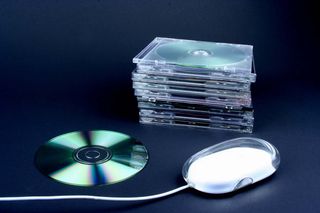TalkTalk calls Bono's file-sharing argument 'outrageous'
ISP TalkTalk has led the criticism of U2 lead singer Bono's claims that ISPs are 'reverse Robin Hoods' for not doing more to combat illegal file-sharing.

U2 frontman Bono's comments that internet service providers (ISPs) weren't doing enough to tackle illegal file-sharing have been branded as "outrageous" by leading broadband provider TalkTalk.
In a Wall Street Journal op-ed entitled Ten for the Next Ten, Bono shared his thoughts on 10 ideas he thought would make the next decade more interesting. But he surely had little suspicion of the firestorm his comments in the "Intellectual Property Developers" entry would kick off.
Bono argued that internet providers profited from copyright infringement by failing to take stronger technical measures against it. "We're the post office, [ISPs] tell us; who knows what's in the brown-paper packages?" the U2 lead singer wrote.
He went on to claim that "we know from America's noble effort to stop child pornography, not to mention China's ignoble effort to suppress online dissent, that it's perfectly possible to track content".
However, TalkTalk executive director of strategy and regulation Andrew Heaney hit back, saying it was "outrageous to equate the need to protect minors from the evils of child pornography with the need to protect copyright owners".
Writing on the TalkTalk blog, Heaney said: "As a society we have accepted that it is appropriate and proportionate to intrude on people's internet use by blocking access to sites that host child abuse images.
He added: "To suggest that sharing a music file is every bit as evil as child abuse beggars belief."
Get the ITPro. daily newsletter
Receive our latest news, industry updates, featured resources and more. Sign up today to receive our FREE report on AI cyber crime & security - newly updated for 2024.
TalkTalk has been prominent in its criticism of the government's proposed Digital Economy Bill, which aims to introduce bandwidth caps and disconnections for persistent copyright infringement via file-sharing networks.
And Heaney suggested Bono was guilty of the same fundamental misunderstanding of the issues that made the Digital Economy Bill so flawed: "Bono obviously does not understand how simple it is to access copyright protected content without being detected," he said.
"P2P file-sharing can be spotted (albeit at great cost) but there are dozens of applications and tools out there which allow people to view content for free and no amount of snooping can detect it".




